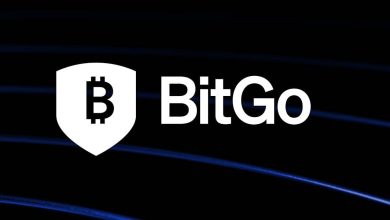‘Impact Theory’ Meets Crypto: How Entertainment Studios Are Tokenizing Fan Communities


KEY TAKEAWAYS
- Impact Theory leads the charge, blending storytelling, education, and decentralized engagement.
- Blockchain enables fan ownership, transforming audiences into active stakeholders through NFTs and fan tokens.
- Studios gain direct monetization via token sales, royalties, and gated community access.
- Fans receive real-world utility exclusive content, governance power, and community status.
- Smart contracts automate trust by ensuring transparent royalties and participation rights.
- Challenges remain, including regulation, technical onboarding, and market
The entertainment industry is undergoing a radical transformation as blockchain technology and cryptocurrencies revolutionize how studios interact with fans. One notable example is Impact Theory, a media company founded by Tom Bilyeu, which epitomizes this shift by blending compelling storytelling with decentralized fan engagement through.
By creating tokenized fan communities on blockchain networks, entertainment studios like Impact Theory are pioneering new ways to empower audiences, incentivize loyalty, and redefine revenue models beyond traditional content distribution.
The Evolution of Entertainment and Fan Engagement
Historically, entertainment studios maintained a unidirectional relationship with audiences, offering content through television, cinema, or digital platforms, while fans consumed passively.
Technological advances, including social media, streaming services, and interactive content, have expanded fan interaction but still leave core aspects centralized and controlled by studios or platforms.
Blockchain’s core characteristics, decentralization, transparency, tokenization, and immutability, enable a fundamentally new paradigm where fans become co-owners and active participants in media franchises.
Tokenization involves converting rights, access, or rewards into blockchain-based tokens that fans can purchase, trade, hold, and trade. These tokens can represent not only collectibles (NFTs) but also governance rights, exclusive content access, event participation, and profit-sharing mechanisms.
Impact Theory’s Role in Tokenizing Fan Communities
Impact Theory has leveraged blockchain and (non-fungible tokens) to transition from a conventional media brand into a decentralized community platform.
The company produces inspirational, educational content designed to empower individuals, and blockchain-enabled tokenization extends this mission by fostering deeper fan involvement and investment.
By issuing exclusive NFTs tied to shows, podcasts, live events, and behind-the-scenes content, Impact Theory allows fans to own unique digital assets with real value and provenance.
These NFTs often serve dual purposes: as digital collectibles and as “keys” granting holders special privileges such as voting rights on show topics, access to private Q&A sessions with creators, or ahead access to new releases.
This blending of storytelling and blockchain incentivizes loyalty, creating stronger emotional and financial bonds between creators and communities. Fans become stakeholders, and their financial or participatory contributions amplify the studio’s reach and content quality.
How an Entertainment-studio Token Model Works
Let’s break down the mechanics of what a studio must design and what fans receive.
1. Token or NFT Issuance
The studio mints digital assets: perhaps a utility token (“fan token”), or a collection of NFTs that represent membership, access, or memorabilia. Fans purchase or earn these assets, typically via a blockchain (ETH,, etc.). For example: Community tokens that grant voting rights, tiered access, or digital collectibles.
2. Defining Utility and Rewards
To avoid speculation-only models, tokens must have real utility:
- Access to exclusive content, events, and behind-the-scenes footage.
- Voting or governance: fans may influence content direction, merchandise drops, or event formats.
- Economic perks: discounts, ahead tickets, revenue-sharing, or token staking.
3. Fan Onboarding & Community Management
Since many fans are not crypto-literate, strong UX is crucial: simple wallet setup, clear value proposition, and education. Studios must invest in community managers, build Discord/Telegram spaces, and moderate token‐holder forums. Impact Theory has job postings for community roles in NFT/Web3.
4. Monetization & partnership
Beyond initial token sales, ongoing revenue can come from secondary market royalties, premium tiers, exclusive live events, and brand partnerships. Tokenization enables studios to bypass some traditional gatekeepers (distribution, ad networks) and align value directly with fan engagement.
5. Risks & Governance
Studios must define tokenomics (supply, distribution, fairness), navigate securities regulation, manage community expectations, and deliver on promised utilities. Tokens that lack meaningful use risk becoming speculative fads.
Benefits of Tokenized Fan Communities
Tokenizing fan communities offers multiple advantages for entertainment studios and fans alike:
- Direct Monetization for Creators: Token sales and secondary NFT market transactions generate new revenue streams. Smart contracts can automate royalty payments on resales, ensuring continuous income for creators.
- Transparent and Immutable Ownership: Fans have verifiable proof of ownership for digital assets and benefits, eliminating fraud and reproductions that plague traditional merchandise or tickets.
- Community Governance: Decentralized Autonomous Organizations () can be established to allow token holders to influence creative decisions or business directions, democratizing content creation.
- Enhanced Engagement: Token holders often gain access to exclusive experiences or content, deepening engagement and creating niche fan ecosystems.
- New Marketing Channels: Tokenization creates viral loops where fans promote unique digital assets, expanding organic reach and brand visibility.
Real-World Applications and Case Studies
Beyond Impact Theory, several entertainment entities are tokenizing fandoms:
- Warner Music and Dapper Labs: Partnered on music NFTs and fan collectibles through the Flow blockchain, allowing artists to connect directly with fans and monetize engagement.
- Sony Music: Invested in blockchain patents for royalties and rights management, exploring fan token programs that reward engagement.
- Independent Artists and Esports: Using platforms like Rally or BitClout to issue fan tokens that unlock unique perks and participation.
Simultaneously, studios create token-gated experiences ranging from virtual meet-and-greets in metaverses to priority access to live events or merchandise, blending the physical and digital fan experience.
Technical Foundations Enabling Tokenization
Blockchain platforms such as ETH, Flow, and Solana provide the infrastructure to mint and manage NFTs and fan tokens with low latency and scalable transaction throughput. Smart contracts automate the enforcement of token utility rules, revenue sharing, and governance protocols without intermediaries.
Interoperability protocols allow fan tokens and digital collectibles to be used across various platforms, increasing utility and value. reduce costs, making smaller transactions and micro-engagements viable for fans.
Challenges and Risks
While promising, tokenization of fan communities carries challenges:
- Regulatory Uncertainty: Token sales can fall under securities regulations, demanding legal compliance to avoid penalties, like when Impact Theory was charged by the for Unregistered Offering of NFTs.
- Market Volatility: NFT and token values can fluctuate wildly, creating speculative risks for fans.
- Technical Barriers: Adoption depends on ease of use for mainstream fans unfamiliar with wallets or blockchain concepts.
- Intellectual Property Management: Clear agreements are needed on rights conveyed via tokens to prevent disputes.
Empowering the Future: How Tokenization Redefines Fan-Driven Entertainment
As studios like Impact Theory pioneer tokenized fan ecosystems, the broader entertainment industry is likely to view a shift from centralized gatekeeping toward decentralized participatory models. Fans will become collaborators, financiers, and curators, reshaping content development and consumption.
The combination of blockchain transparency, smart contract automation, and digital scarcity enables fairer revenue distribution, greater creative autonomy, and innovations in fan monetization. Token economies can sustain long-term engagement by rewarding loyalty, creativity, and advocacy.
Impact Theory illustrates how integrating compelling storytelling (“Impact Theory”) with crypto innovation opens new frontiers for media entrepreneurship. These tokenized communities offer blueprints for studios aiming to thrive in the web3 era, balancing commercial success with fan empowerment.
FAQ
What is a tokenized fan community?
A tokenized fan community uses blockchain-based tokens or NFTs to give fans ownership, voting rights, and exclusive access to a studio’s content and events.
How does blockchain technology change fan engagement?
Blockchain decentralizes control, allowing fans to become active participants and stakeholders instead of passive consumers. It also provides transparency and verified digital ownership.
What makes Impact Theory a pioneer in this model?
Founded by Tom Bilyeu, Impact Theory integrates storytelling with blockchain, using NFTs to create deeper fan connections, community governance, and exclusive experiences.
What are the main benefits for fans?
Fans gain verifiable ownership of collectibles, voting rights in creative decisions, ahead content access, and potential revenue from token trading or rewards.
How do studios profit from tokenization?
Studios earn from primary token sales, secondary market royalties, and token-gated events, creating continuous revenue beyond traditional content distribution.
What risks come with tokenized entertainment?
Key challenges include regulatory compliance, speculative volatility, intellectual property clarity, and ensuring real utility for tokens to avoid hype-driven bubbles.







